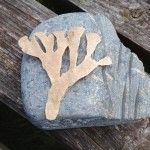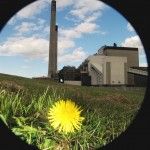‘Community engagement has been a part of planning since the Skeffington Report was published in 1967. In this time there has been a wealth of work done in developing approaches to engaging communities, in developing tools and resources to support this and in supporting planners to share their understanding with communities. However a welcomed growing demand from communities to become more involved in planning brings new issues and challenges.’ Craig McLaren, RTPI
20% of planning professionals in Scotland now volunteer for Planning Aid for Scotland (PAS). They give their time and knowledge, explaining, informing and thus enabling people to engage positively with the planning system. These volunteers work on the ground with communities in an atmosphere of trust and mutual respect which allows for open debate and frank exchange of views and opinions – an exchange that takes place not only between professionals from different disciplines, but between generations and different held values. It also uses and builds on local knowledge and marries it with technical know-how!
But planning is about balancing often competing demands – the planner must take ‘material considerations’ into account, being objective in their decision-making.
But what if we elevated subjectivity or the ‘feel’ factor in decision making – how would decisions about landscape protection be approached then?
By Leaves We Live is a new initiative by PAS inspired by Sir Patrick Geddes (1854 – 1932) to look at innovative approaches of raising awareness of the connection between taking planning decisions and sustaining Scotland’s natural spaces, from urban woodlands to the natural landscapes of our national parks.
Through this new initiative, where artists are teamed with planning professionals, we aim to reflect and develop new understanding, language and tools to capture public knowledge and so enable a wider discussion on what is important to people every day in relation to Scotland’s natural resources.
Sir Patrick Geddes ,a Scot, is regarded as the founding father of modern day town planning and PAS’s work is informed and inspired by Geddes’ vision of ‘folk’ planning – an aspiration which is echoed in The Planning etc. (Scotland) Act 2006. These reforms place efficiency and inclusivity at the heart of planning. PAS assists people in their right to contribute to decision-making for the sustainability and protection of Scotland’s environment and landscape.
Geddes was a renowned environmental researcher and his phrase ‘think global, act local’ powered the green lobbyists in the early days of campaigning around global warming.
In his final lecture at Dundee University Geddes said –
“We need to give everyone the outlook of the artist, who begins with the art of seeing – and then in time we shall follow him into the seeing of art, even the creating of it.”
Geddes had a passion for creating meeting places for discussing ideas and
bringing people together. This project proposes a way of exploring some of Scotland’s most challenging environmental issues by bringing together built environment professionals and artists to find solutions to communicating and engaging the wider public in celebrating and protecting Scotland’s natural environment. By Leaves we Live is engaging some of Scotland’s most experienced and talented artists who demonstrate strong bodies of work related to the natural environment and their understanding of the challenges to its future.
Six projects are currently under way:
| Theme | Location | Artform | |
| 1 | Urban forests | Easterhouse | Photography |
| 2 | Renewable energy and the natural landscape | Loch Lomond and the Trossachs National Park | Drawing |
| 3 | Forest restructuring | Borders | Poetry |
| 4 | East Coast – Biodiversity and Coastal Challenges | Tayside and Grampian | Sculpture |
| 5 | West Coast – Biodiversity and Coastal Challenges | South Highland | Visual art |
| 6 | Sir Patrick Geddes | Edinburgh | Writing/ Word mapping |
When creativity works best it will create something new – and we hope that By Leaves We Live can create a new language to capture and articulate what is important to us as individuals and us as a society.
Perhaps it is now time to acknowledge and even nurture ‘imperfection’ in order for us to flourish and evolve!
Petra Biberbach


